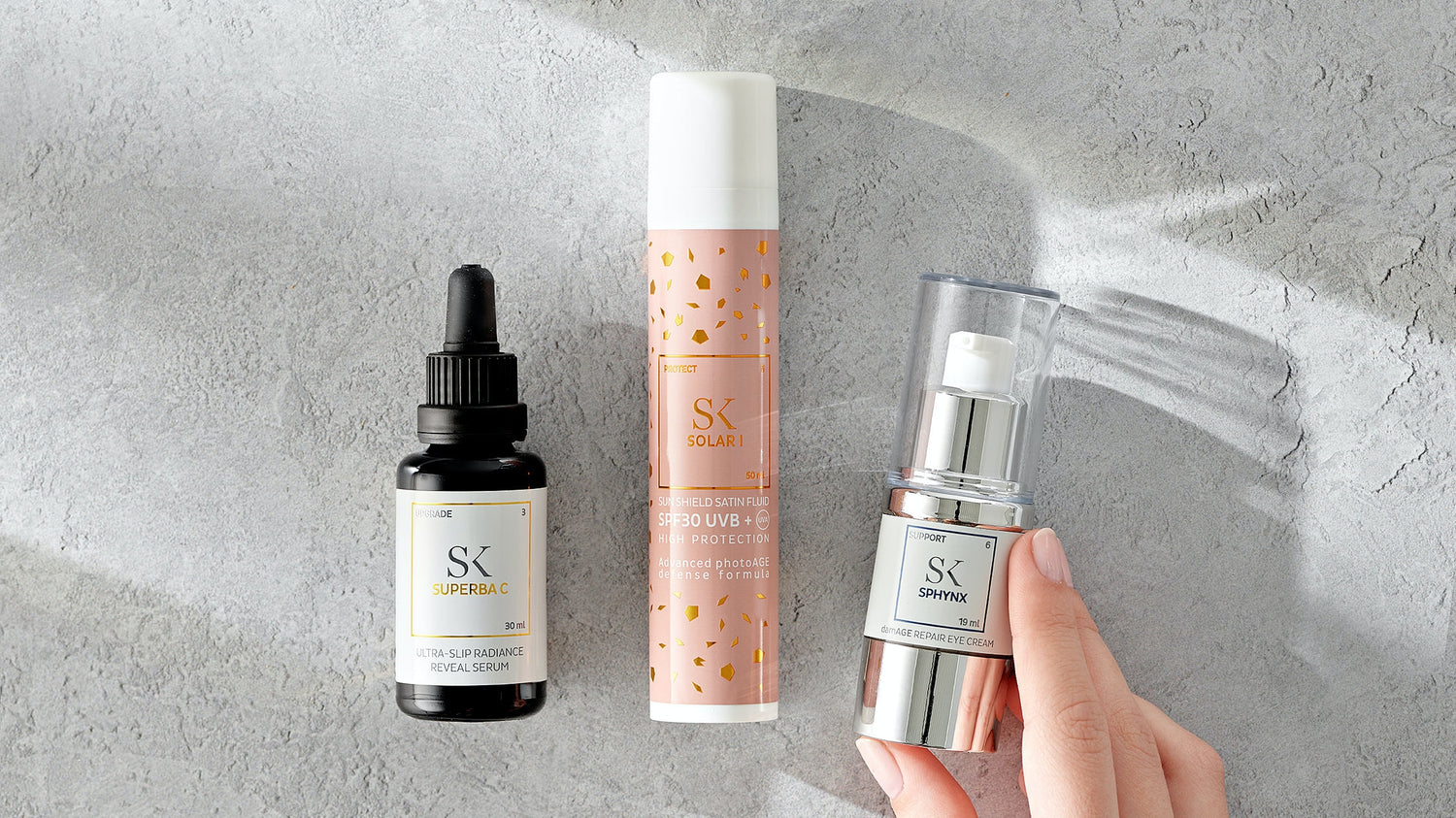Every day, our skin is exposed to the influence of oxidative stress caused by free radicals caused by UV radiation, stress, smoking, lack of sleep... But that's where antioxidants come in - real superheroes that neutralize free radicals, protecting our skin from the damage they cause and prevent. her premature aging. Learn more about why our skin loves antioxidants and how you can incorporate them into your routine below.
What are reactive oxygen species?
To begin with, it is important to know that reactive oxygen species (ROS) are species created from O 2 that possess oxidative activity and represent the most biologically significant free radicals, that is, species that contain at least 1 unpaired electron. Free radicals are inherently unstable and "steal" electrons from other cellular components to regain an even number of electrons. It is their instability that makes them harmful because they "steal" electrons from DNA, lipids in the cell membrane, proteins and other vital structures, leaving them damaged. In addition to direct damage to these molecules, they can also activate enzymatic and non-enzymatic cellular responses, with the potential to modify other processes, ultimately interfering with gene expression.
What are antioxidants and why does our skin love them?
Due to its role as the interface between the body and the environment, our skin is constantly exposed to oxidative stress caused by ROS, which originates from endogenous sources, such as enzymatic activity or activated neutrophils, but also from external stimuli, such as UV radiation, smoking, insufficient hours sleep, bad eating habits, etc.
This is precisely why antioxidants are important to our skin - substances that neutralize ROS, preventing oxidative damage to cells and tissues. These are superheroes that prevent premature aging of the skin and are one of the most important anti-aging ingredients in the skin care routine.

What are the benefits of antioxidants for our skin?
In the fight against premature aging of the skin, prevention is key. Regular application of sun protection products, protective clothing and avoiding direct exposure to the sun when its rays are most intense help minimize damage caused by UV radiation. However, it is also necessary to protect against oxidative stress caused by UV radiation. Therefore , the topical application of antioxidants helps preserve youthful skin because, in addition to serving as a shield against environmental stressors, such as pollutants, it also acts as an additional protective layer against the harmful effects of the sun's rays, so summer is the ideal time to introduce antioxidants into your skin care routine .
The most famous antioxidants
Topical antioxidants contribute to maintaining the cellular redox balance and act as a cellular shield, and some of the most well-known are vitamins C and E, resveratrol, and plant extracts such as green tea and licorice.
- The activity of vitamin E is possessed by tocopherols and tocotrienols, which show an excellent antioxidant effect and protect the cell membrane by preventing the formation of oxidized phospholipids, prevent lipid peroxidation, protect against photoaging, reduce skin roughness and the depth of wrinkles, and also accelerate wound healing.
- Vitamin C is a very important antioxidant that is necessary to maintain the proper structure and function of the skin. Ascorbic acid stimulates the synthesis of ceramides - lipids that are found in the stratum corneum and are responsible for maintaining optimal skin hydration. In addition, it participates in the synthesis of collagen I and III, reduces the expression of collagenase that destroys collagen and inhibits melanogenesis.
- Unlike ascorbic acid, sodium ascorbyl phosphate is a very stable and safe form of vitamin C that is mild enough even for very sensitive skin. Superba C antioxidant serum contains up to 10% SAP, vitamin E and ferulic acid that give the skin a beautiful glow and is the ideal antioxidant bomb for skin with the first signs of aging, uneven tone and pigmentation spots and acne. You can freely use Superba C in your morning skin care routine because SAP does not make the skin sensitive to the sun.
- Resveratrol is a polyphenol that in topical products is a more potent antioxidant than vitamin E and exhibits excellent anti-aging properties, as well as antimicrobial, anticarcinogenic and anti-inflammatory effects.
- Green tea extract, in addition to showing an excellent antioxidant effect, also stimulates the synthesis of ceramides and sphingolipids in the skin, shows anti-aging, antimicrobial and anti-inflammatory properties and helps with hormonal acne because it inhibits 5-alpha reductase, which is essential for the conversion of testosterone into dihydrotestosterone, which leads to to increased sebum production and the creation of prerequisites suitable for the development of acne.
- Licorice extract protects the skin from oxidative stress, but also has antimicrobial and anti-inflammatory properties and helps in the treatment of atopic dermatitis.
Which Skintegra products contain antioxidants?
Every skin type can greatly benefit from the use of antioxidants, therefore they are an indispensable component of most Skintegra products, in which their combinations provide multiple benefits to our skin. Serum emulsion Architect contains 1% bakuchiol, resveratrol, caffeine and green tea extract , and Spectra with vitamin B12 contains green tea extract, caffeine and resveratrol thus protecting our skin from environmental stressors. On the other hand, some of the wonderful ingredients that make up the Triu Light treatment cream are 2 forms of vitamin E and green tea and licorice extract . Even the moisturizing, reparative fluid with a high protection factor (SPF 30) Solar I is enriched with 2 forms of vitamin E and green tea extract.
Literature:
- Addor, Flavia. (2017). Antioxidants in dermatology. Anais Brasileiros de Dermatology. 92. 356-362.
- Michalak, Monika. (2022). Plant-Derived Antioxidants Significance in Skin Health and the Aging Process. International Journal of Molecular Sciences. 23.
- Farris, Patricia. (2021). The Why, What, When, and How of Topical Antioxidants in Cosmeceuticals. Cutis. 107. 2-8.
- Baumann, Leslie. (2014). Cosmeceuticals and Cosmetic Ingredients. 135-136.

